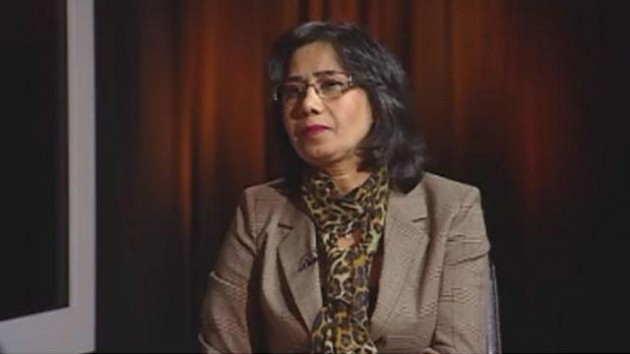Rights Lawyer Says Iran Needs Existing Laws Enforced, not a New Charter
 Lawyer and member of the Defenders of Human Rights Center Mahnaz Parakand discussed necessary steps for implementing human rights protections in an interview with the International Campaign for Human Rights in Iran. “Before thinking to design a Citizenship Rights Charter, we must implement the Iranian Constitution, even with all its shortcomings. Many of the articles of the Constitution that are related to the people’s rights have been dormant for years,” she said.
Lawyer and member of the Defenders of Human Rights Center Mahnaz Parakand discussed necessary steps for implementing human rights protections in an interview with the International Campaign for Human Rights in Iran. “Before thinking to design a Citizenship Rights Charter, we must implement the Iranian Constitution, even with all its shortcomings. Many of the articles of the Constitution that are related to the people’s rights have been dormant for years,” she said.
Mahnaz Parakand represented imprisoned human rights lawyers Abdolfattah Solani and Nasrin Sotoudeh, as well as seven Baha’i faith followers. She left Iran in 2011, following intimidation and harassment by security forces, and she currently resides in Germany. In the years following the 1979 Iranian Revolution, Parakand was a political activist. She was arrested at a demonstration in June 1981, and spent five years inside Evin and Ghezel Hessar Prisons. She was released in 1986 and was eventually able to return to law school and complete her education. She was an apprentice at Abdolfattah Soltani’s law firm, and went on to represent him as one of his lawyers.
Mahnaz Parakand told the Campaign that the Rouhani administration’s efforts would be better spent on enforcing the existing laws and the new Islamic Penal Code. “For years, those outside Iran have scrutinized Iran for the use of ‘moharebeh’ (enmity with God) charges. According to Article 186 of the old Islamic Penal Code, if someone was a supporter of an armed group, he would be charged with ‘moharebeh.’ If we are to enforce the new Islamic Penal Code, all the ‘moharebeh’ convictions prior to this law should be reviewed one more time. I believe Mr. Rouhani has to pick some individuals to review the degree to which the new Islamic Penal Code is being enforced in the area of the rights of the people. Unfortunately, instead of reviewing such much needed cases, the energy has been spent on writing another law,” Parakand told the Campaign.
“According to the old Islamic Penal Code, if a person was convicted of several crimes, he would have to endure all the related sentences, whereas under the new Islamic Penal Code, if a person commits several crimes, he will only be sentenced to punishment for the crime with the heaviest sentence. After 2009, we have had many prisoners who have been charged with several crimes such as ‘propaganda against the regime,’ ‘assembly and collusion against national security,’ and ‘insulting the Supreme Leader.’ If sentences for all of these charges were to be added together, the individual would receive more than ten years in prison, but no court has so far implemented the new Islamic Penal Code for these individuals. If implemented, many of them should be released now or their sentences would be decreased,” Parakand added.
“Article 38 of the Constitution prohibits torture, yet torturing suspects is a routine procedure by the Investigative Unit of Iranian Police. Torture is routinely used not only for political suspects or detainees, but also for individuals who have committed crimes such as petty theft, some of whom have lost their lives under torture. Political prisoners, who are wrongly accused as a result of a monopolistic way of thinking by the rulers, are arrested and easily tortured and forced to make confessions under torture. These confessions then become the basis for the rulings and there have been death sentences issued based on those confessions. Mr. Rouhani should go and carry out his duties, one of which is overseeing the enforcement of the laws in the country. He must pick representatives to send to courts and see the situation of trials and read the cases. There are death row convicts who have been in prison for years. The representatives should investigate to see based on what reasons and according to what laws these individuals have been sentenced to death. If the Rouhani administration unties these knots, it would mean that he is paying attention to citizen rights,” she added.
“I believe drafting this Citizenship Rights Charter is a propaganda tool, mostly to show off internationally. I don’t believe it was written for inside Iran, but for outside Iran to show that this government is going to pay attention to the situation of human rights in Iran. Fixing the situation of human rights in the country or creating democracy in the society does not [necessarily] mean that new laws should be added. The existing laws pertaining to the people’s rights should be enforced. We have laws, they are just not enforced. What need do we have for new laws that are not any different from the old ones?” Mahnaz Parakand told the Campaign.






